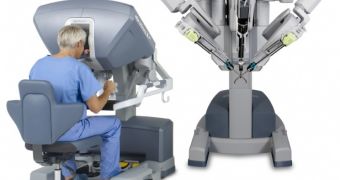Surgical robots weren't exactly easily accepted, but they did establish themselves as good alternatives to traditional laparoscopic tools. Their advantages cannot be denied after all. Still, it seems that problems have cropped up.
The “problems” we are referring to is a rise in reports of “adverse incidents,” which is to say problems that arise during or after such an intervention.
According to Bloomberg, the FDA (US Food and Drug Administration) is conducting an investigation to see what all the new reports mean.
It is possible that surgical robots aren't what they are cracked up to be, but it is also possible that the doctors who use them are the ones making the mistakes.
Surgical robots aren't automated contraptions after all. They always have a man or woman manning the so-called “control panel.”
It is also possible that the higher reports are owed simply to the larger number of surgical robots now in use.
Back in 2000, Intuitive Surgical’s da Vinci system became the first FDA-approved commercially available robotic surgical platform.
The bot has since been used on hundreds of thousands of patients, but it is no longer the only one. It is also logical that, for every dozen or so cases, one instance where complications occur might arise.
Right now, it is hard to tell which of these reasons is behind the higher number of reports, or if it is because of something completely different, according to FDA spokesperson Synim Rivers.
At any rate, the FDA’s Adverse Event Reporting System has sparked a survey of all surgeons on complications they’ve seen and their training.
Should something fundamentally wrong be discovered, we can only hope the problem is easy to fix. The robot systems are very costly after all ($2.5 million / 1.92 million Euro), and so are the surgical interventions (on average $2,139 / 1,643 Euro more than the laparoscopic procedures). Obviously, no hospital or patient will be pleased to learn they may have paid so much for nothing.

 14 DAY TRIAL //
14 DAY TRIAL //